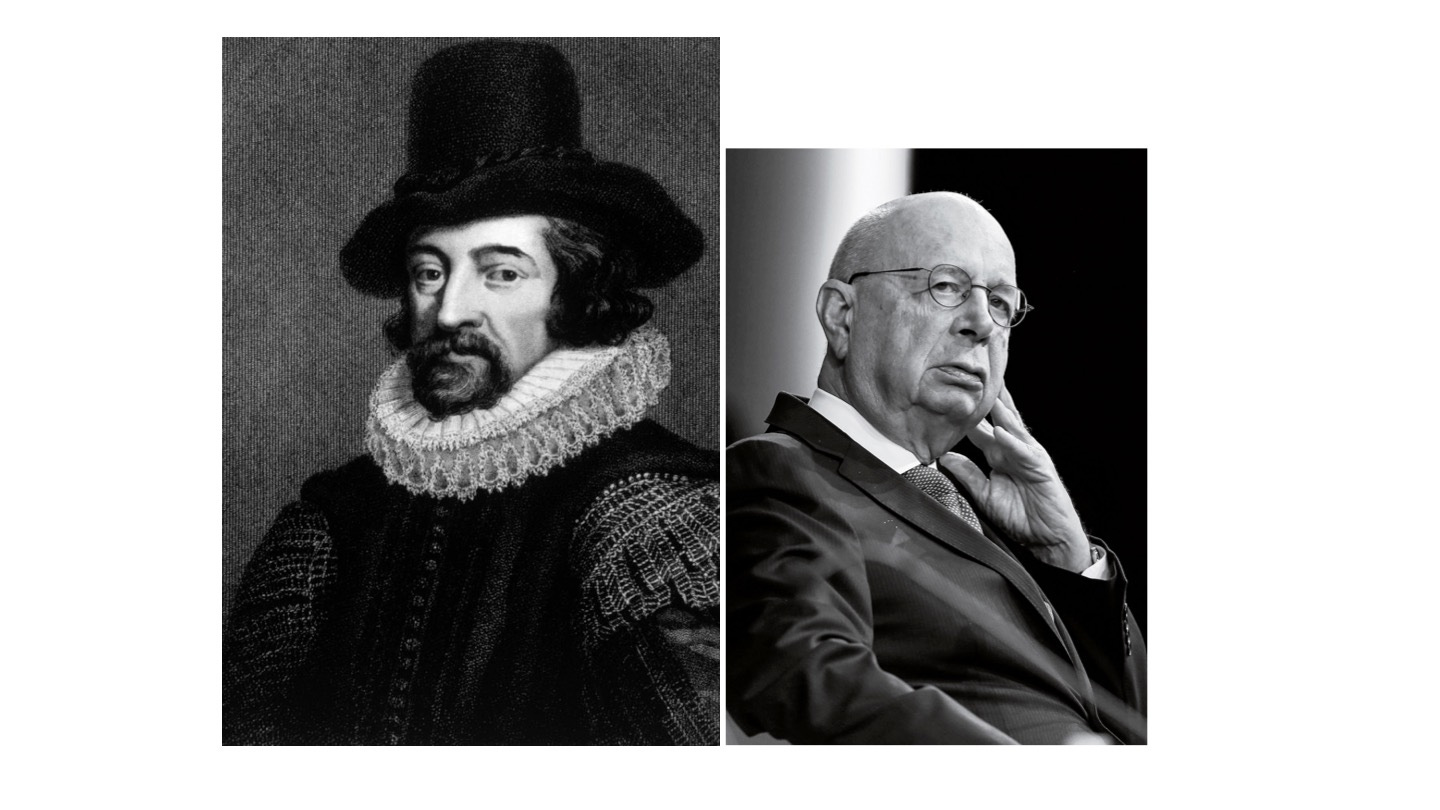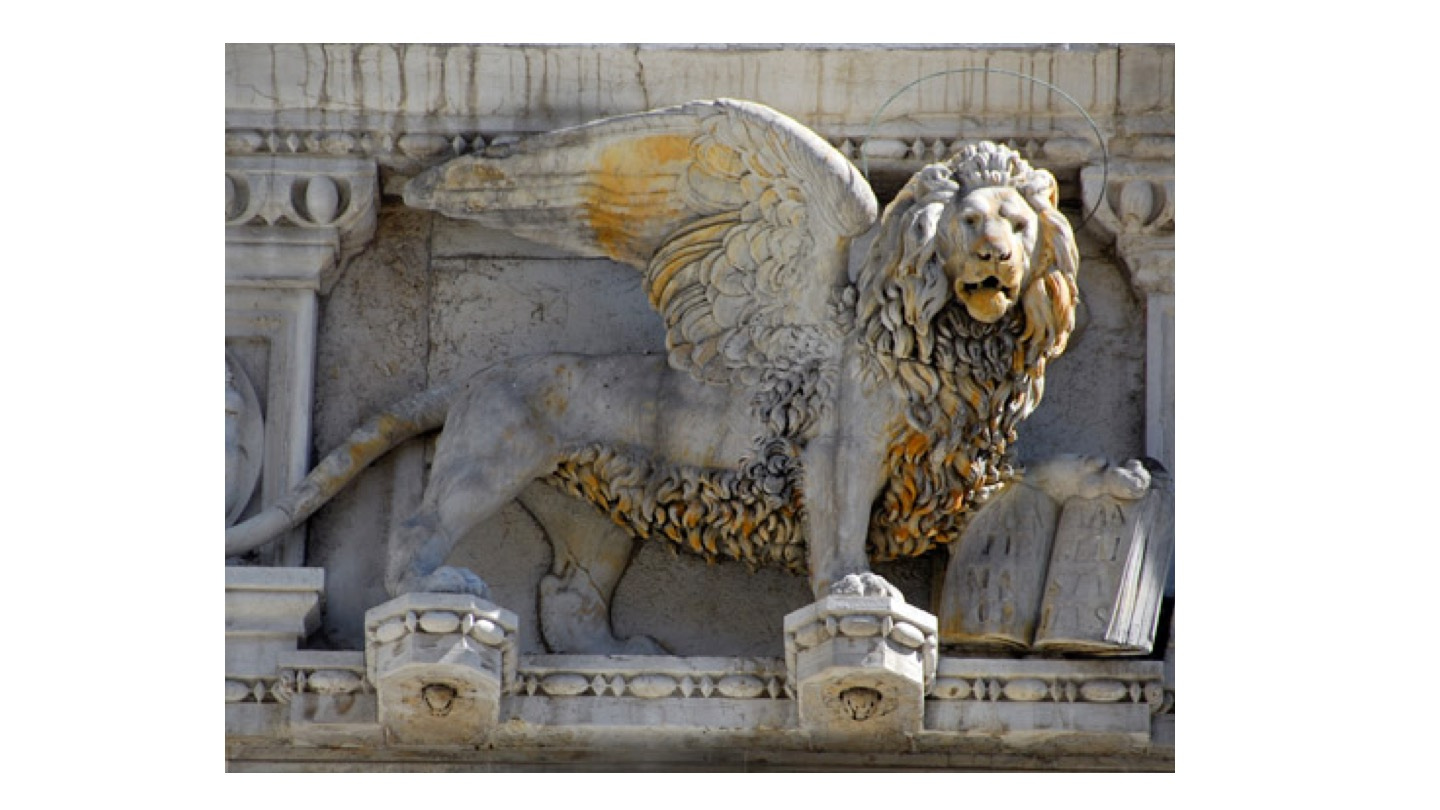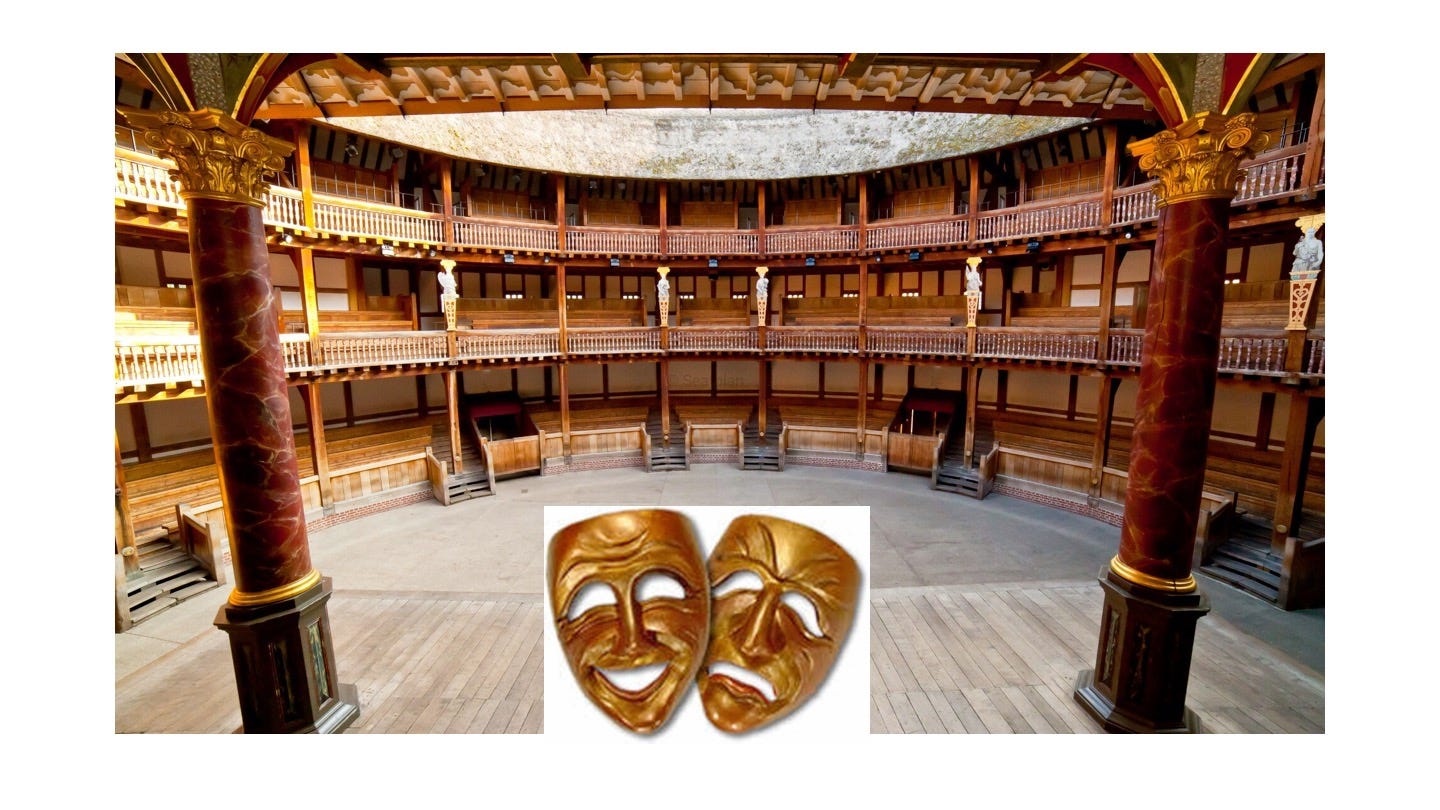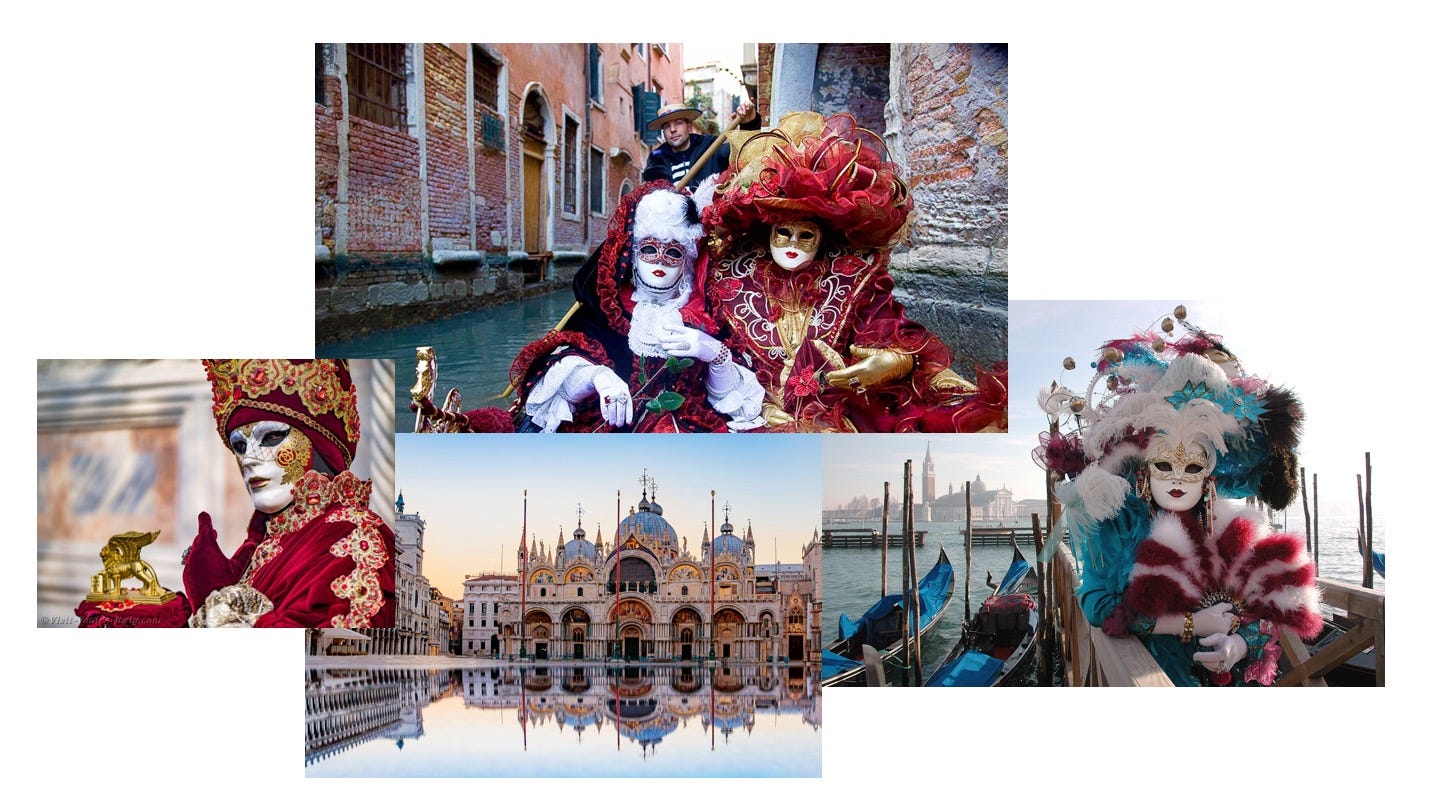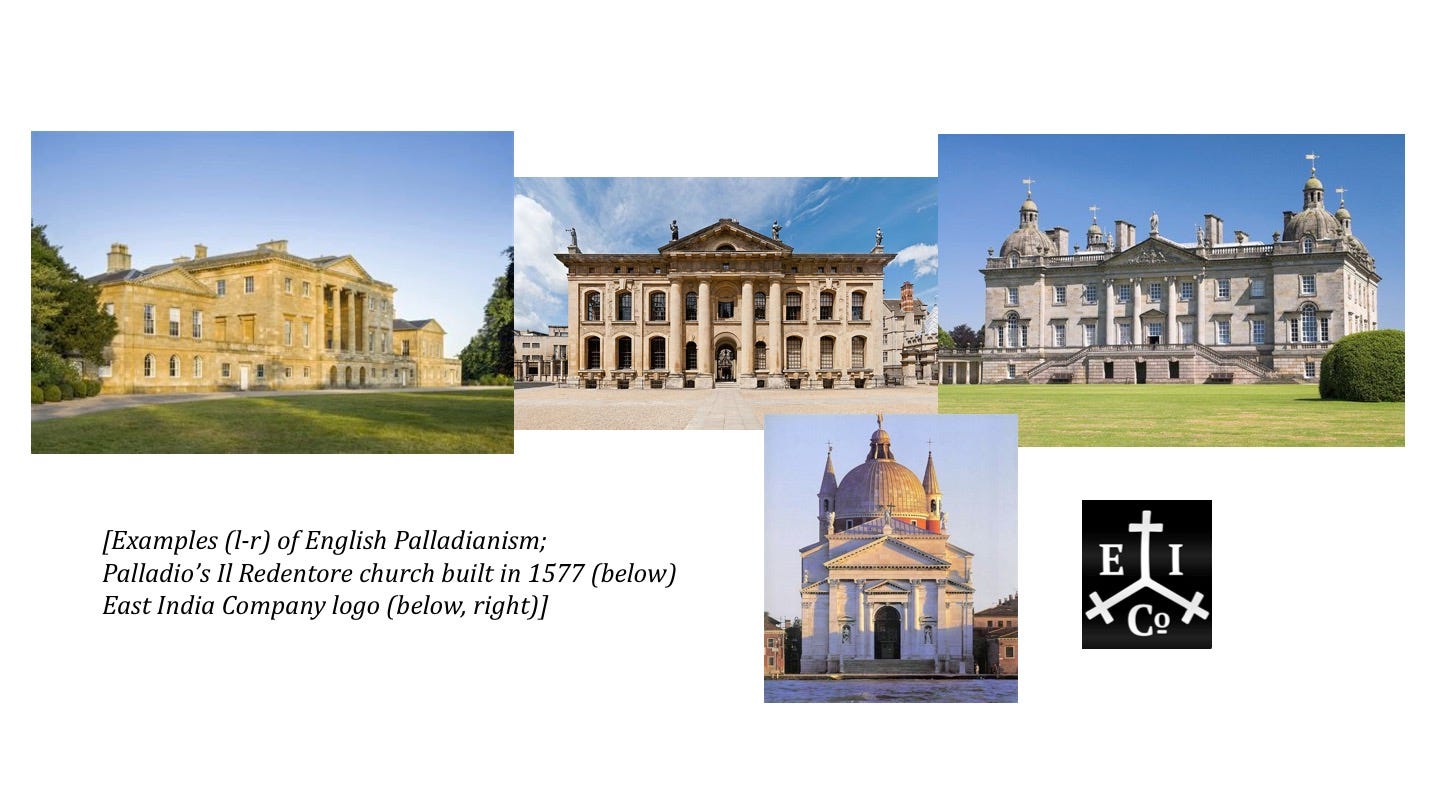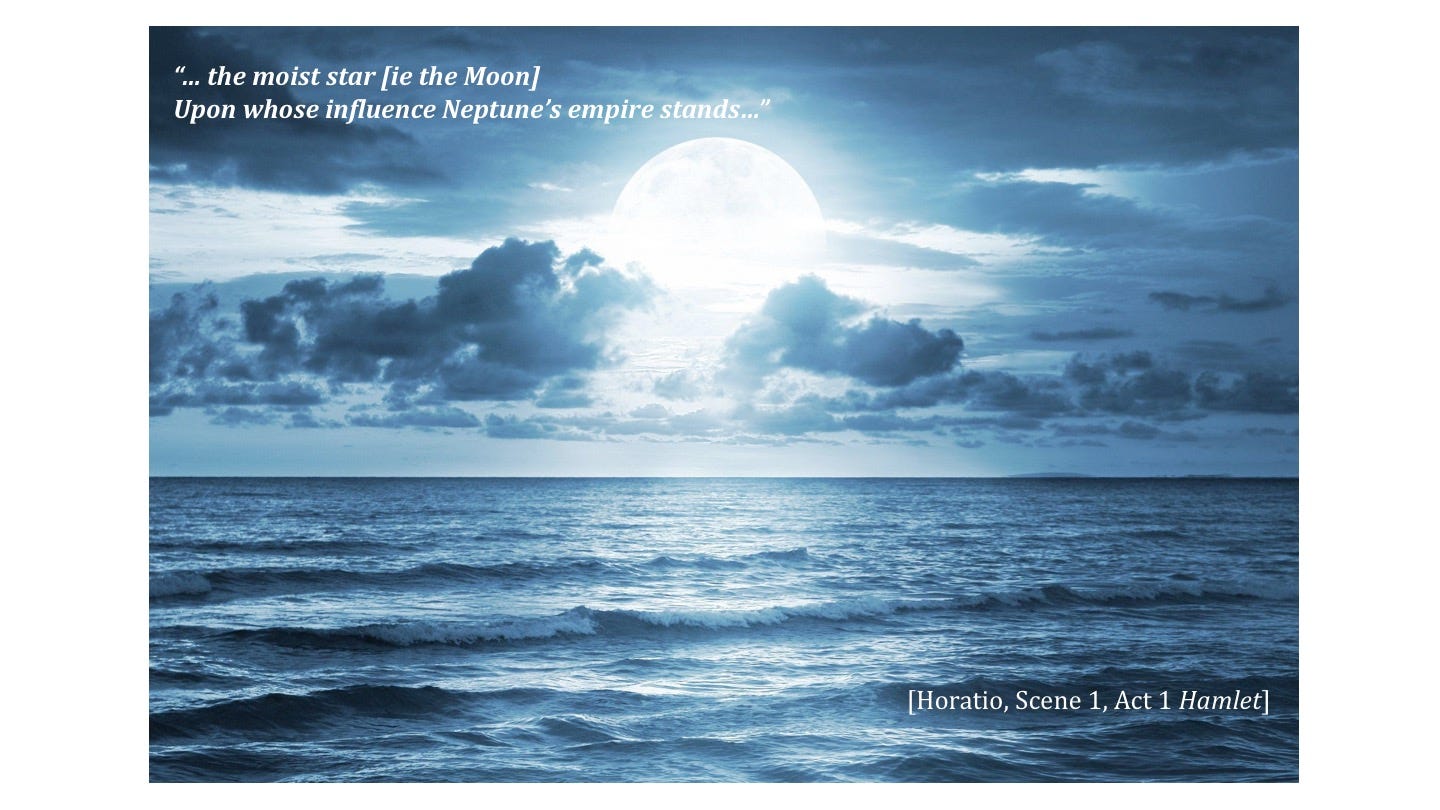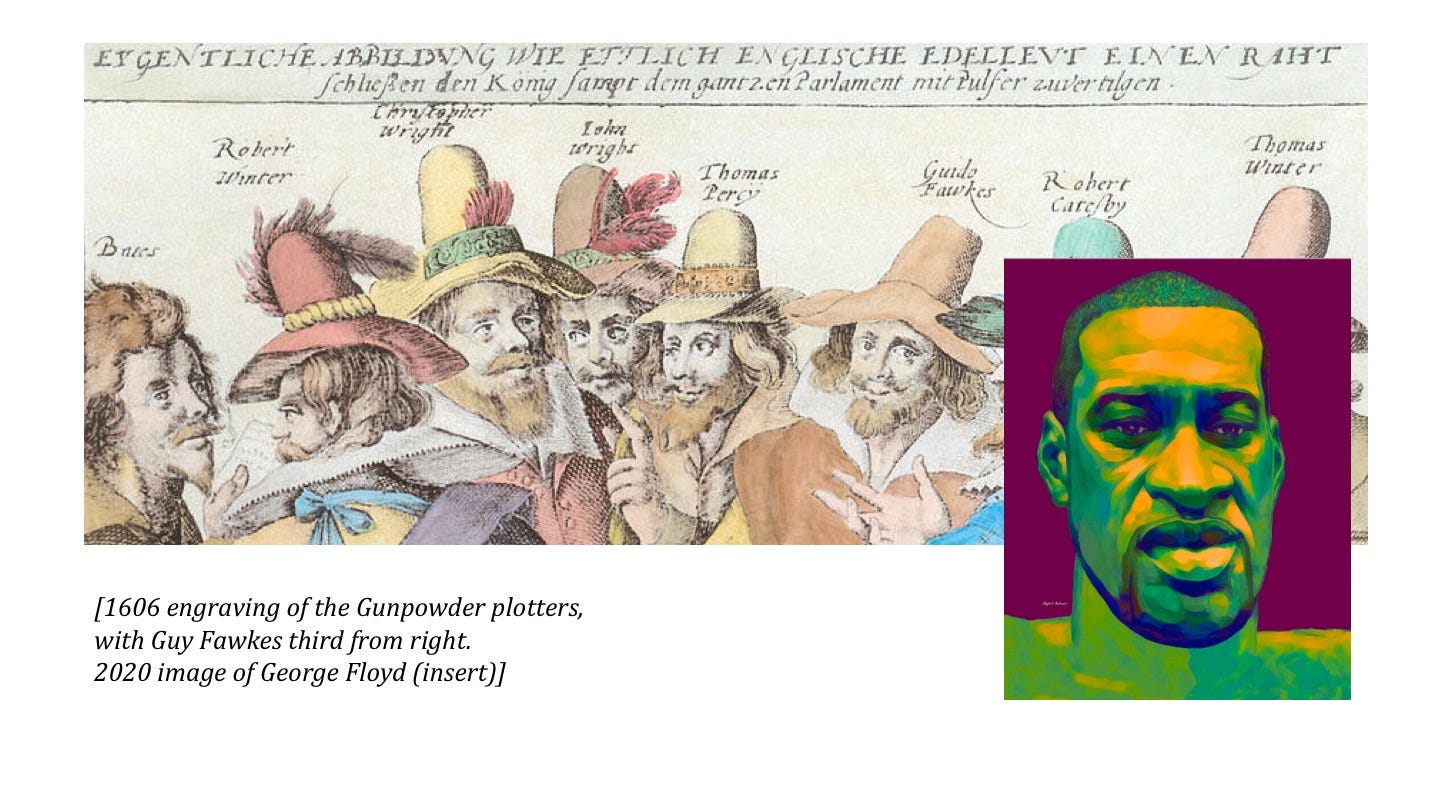The first Great Reset: 1620, not 2020
1620 - Sir Francis Bacon published his 'Great Instauration', arguably the first Great Reset. 400 years later Klaus Schwab follows with his version in July 2020.
The parallels are uncanny. Both men are ambitious in their scope and vision. On the one hand, Klaus Schwab calls his organisation, with no small modesty, World Economic Forum (WEF) and lays claim to spearheading the Fourth Industrial Revolution. On the other hand, Sir Francis Bacon believed himself to be the ‘herald of the New Age’, a Golden Age.
There is no doubt Bacon achieved much in his lifetime (1561-1626) which spanned the reigns of Elizabeth I and James I, culminating as Lord Chancellor, the highest position in England. Bacon is credited with changing the way that people think about science, philosophy, jurisprudence and legal reforms. Perhaps his greatest success was his impact on the English language as the creator of thousands of new words and phrases, many of which can be found in the plays of Shakespeare and still in use today.1
The question, however, needs to be asked Cui bono? Who benefitted from all of this Baconian talent? Was there a wider context of interests beyond England that is not much discussed that may well have encouraged Bacon in certain directions? Could it be that he was responding to the desires of the Doom Cult? And does the same apply to Klaus Schwab?
At the time of Bacon, the Doom Cult was still mostly based in Venice. Four hundred years later it had more or less morphed into the remnant of the British empire with a central hub still in London and outposts in places like Geneva.
Curiously, Venice has an invisible presence in Klaus Schwab’s 2020 Covid-19: The Great Reset book.2 He doesn’t mention the Adriatic city by name but he starts his book with historic accounts of previous plagues (as if wanting to give validity to Covid-19 as a genuine pandemic) and then fails to mention that the repressive measures we experienced - eg house arrest aka ‘lockdown’ - originated in C14th Venice as a result of the Black Death. People were forcibly removed to islands in the Venetian lagoon where they were detained for an arbitrary 40 days; forty being the root of the word ‘quarantine’ (as in “quaranta giorni”).
Regardless of where the Doom Cult might now consider itself based, its goals have remained the same over the last 400 years. Primarily, whoever serves the interests of the Doom Cult, whether Sir Francis Bacon in C16th/C17th or Klaus Schwab in the C20th/C21st, they need to ensure that the Cult has access to large organisations. These organisations can be empires, big trading corporations, charitable foundations or international bodies like the UN - for the purpose of more easily moving around resources, human (ie trafficking) and non-human (eg opiates).
Secondly, a faithful servant of the Doom Cult must be complicit in mind manipulation, outright lies, deceit and trickery, as well as espionage and data collection, so that there is no interference in the affairs of the Cult. Mass surveillance can identify any potential resistance. The point of the mind manipulation is to disempower and distract any resistance, away from the activities of the Cult.
It is easy to establish Klaus Schwab’s credentials as a leading member of the Doom Cult. He is an enthusiastic supporter of international organisations: ‘if we do not improve the functioning and legitimacy of our global institutions, the world will soon become unmanageable and very dangerous’.3 He acknowledges both Maurice Strong and Henry Kissinger as his mentors, both members of the Club of Rome. Strong was also the architect of the 1991 UN Rio Earth Summit which is why we are trapped in climate tyranny that he helped to orchestrate. Schwab first encountered Kissinger at Harvard where he spent time in 1967.4 Both Schwab and Kissinger were given honorary knighthoods by Queen Elizabeth II.5
With the benefit of hindsight, it is clear that Schwab’s The Great Reset is a work of propaganda. It is full of deceit, deliberately perpetuating the lies told about the pandemic. He talks of “overwhelm” but must have known about the TikTok dancing nurses - dancing because of underwhelm. He has no trouble in describing the Covid-19 virus as being zoonotic. That lie gives him the chance to repeat another incredibly twisted one about ‘the effect that Covid-19 might have on climate change [as] it is with climate change and ecosystem collapse … that the pandemic most easily equates’[?!?].6
Now that we know with 99.9% certainty that Covid-19 came from a lab and had been in development for more than 20 years, Klaus Schwab’s claims are bizarre in the extreme. Schwab wants us to believe that the pandemic represented “a rare but narrow window of opportunity to reflect, reimagine and reset our world” but that can be reinterpreted as “window of opportunity” to inflict global terror on humanity under the pretense of fighting an artificial viral infection.7
Bacon’s 1620 “window of opportunity”
The Baconian re-set 400 years earlier was not the response to a particular catalyst, such as a fake pandemic. But his publication of The Great Instauration may well have been as a result of the Doom Cult taking a more direct interest in him from around 1616. That is when he began corresponding with Paolo Sarpi, a Venetian Servite monk. Bacon’s Great Instauration was published four years later in 1620 - without openly acknowledging Sarpi’s impact on the work.
Bacon himself was a prime target for the Doom Cult, being clever and well-connected. While he didn’t quite have prestige in the time of Elizabeth I (he received his knighthood and his titles 1st Viscount St Alban, 1st Lord Verulam from her successor, James I), he moved in influential circles. If true that he was the illegitimate son of Elizabeth I and that he was the real author of much of the Shakespeare plays, then he was already primed for deceit and deception. These were secrets that, as ‘a concealed poet’, he took with him to the grave.
In 1623 Bacon wrote about the usefulness of theatre as a means of influencing people:
“Dramatic poesy, which has the theatre for its world, would be of excellent use if well directed. For the stage is capable of no small influence… Among the ancients, play acting was used as a means of educating men’s minds…. Minds of men are more open to impressions .. when many are gathered together, than when they are alone.”8
[Advancement of Learning]
There is a clear example of Bacon using plays to influence change in Merchant of Venice. It revolves around the subject of legal reform in which he had a direct interest as a barrister, a member of Grays Inn; serving as Attorney General under Elizabeth I and Lord Chancellor under James I.
In Bacon’s time, law courts were split between Common Law courts and the High Court of Chancery. It is notable, for instance, that there is no mention of Magna Carta in the King John play because Bacon had a preference for Chancery over Common Law. He would have liked English jurisprudence to have moved in the direction of more codified Roman law, partly as a way of boosting the power of the monarch.
Sir Thomas More had argued in favour combining the two courts but the reform didn’t emerge until the Courtney v Glanvil case of 1615 in the reign of James I when Sir Francis Bacon advised the king to support the Chancery Court, not Common Law. The significance of this legal battle is that it appears nearly 20 years earlier in Merchant of Venice when the legal arguments in the trial at the centre of the play shift between ‘law’ (ie the law of contract, considered in an English Common Law court) and ‘equity’ which in the England of the time would have been heard in a Chancery Court.9 In the play the Duke of Venice presides over both, something which didn’t happen in England until James I, long after the play was written.10
While there is no evidence that Bacon ever actually visited Venice, he knew others who did and was himself known there. Venetians had had a powerful presence in England since the time of Henry VIII when they helped him with his divorce. It is possible that Bacon may have been initially inculcated in the ways of the Venetians in his early years when he spent time in Paris, attached to the English embassy. He certainly returned with knowledge of the spymaster’s craft - secret codes and ciphers - and with enthusiasm for his project of reforming the English language.
It was later in Bacon’s life that two prominent Venetians, the Servite monks Paolo Sarpi and Fulgenzio Micanzio, made direct contact with him. Micanzio was literary agent for Bacon in Venice.11 It was Sarpi’s work that is clearly the source for Bacon’s scientific method based on inductive reasoning and empiricism. Given that these works of Sarpi’s, Pensieri and Arte di ben pensare, were private, and that Bacon knew about them, emphasises the closeness between them. Sarpi was writing between 1588 and 1591 and these works were not published until after WWII. Sarpi started corresponding with Bacon from 1616, four years before Bacon published his ‘Great Instauration’ in 1620.12
The plan for ‘paradise’
Both Sir Francis Bacon and Klaus Schwab propose a plan for ‘paradise’ in which logic plays a fundamental role. And in some senses, the earlier 1620 work lays the ground for the later 2020 proposal. Bacon’s 1620 Great Instauration is a framework for six steps needed to achieve a state of paradise using science and philosophy. It is in effect an early form of encyclopedia and was acknowledged as such by Diderot and other later French encyclopedists; necessarily broader in scope than Schwab’s 2020 Great Reset which is more of a manifesto.
The ‘paradise’ that Klaus Schwab wants to usher us into is based on the logic of technology. This is the ‘golden’ era of the Fourth Industrial Revolution and with the pandemic he says ‘the “digital transformation” … has found its catalyst’.13 But Schwab is arguing for more than technology, although it obviously has its place in terms of mass surveillance, remote healthcare and other ‘progressive’ uses of AI and robots.
What Schwab wants are green policies that prioritise climate action and the UN’s Sustainable Development Goals. Not surprisingly, he wants more international collaboration and an end to the current social contract, replaced by stakeholder capitalism with more public-private partnerships, as well as more government.14 He also argues in favour of an end to our standard of living. Nothing short of a complete transformation of society.
Similarly, Sir Francis Bacon wanted to change society and make ‘progress’ so that the technology of his day could be more effective (‘a growth worthy of mankind’).15 He was arguing for a change of mindset so that progress could be made: ‘an entirely different way from any known to our predecessors must be opened to the human understanding … in order that the mind may exercise its jurisdiction over the nature of things’;16 in effect, a more practical mindset and one that thought along Venetian lines. His purpose, however, was to supply only ‘the instrument’, the ‘New Organon’.
Part of Bacon’s great scheme was the ‘compilation and completion of a Natural and Experimental History … [so that] philosophy and sciences may no longer be unsettled and speculative, but fixed on the solid foundation of a varied and well considered experience’.17
This desire to catalogue, to identify and itemise is v much a left brain characteristic that Bacon shares with Schwab.18 In Schwab’s case it is disguised as an attempt to mitigate global risk by identifying all factors that create interdependency,19 including by how much the natural world is collapsing [ie the “dead & dying planet” theme so beloved of the Doom Cult].
Empire vs ‘degrowth’
Where Schwab and Bacon differ is in application. On the one hand, Bacon is expansive. He wants to build empire, to have dominion over Nature, for colonies to grow.20 It is no coincidence that the frontispiece of The Great Instauration displays the Pillars of Hercules, framing the opportunity of the ocean beyond.
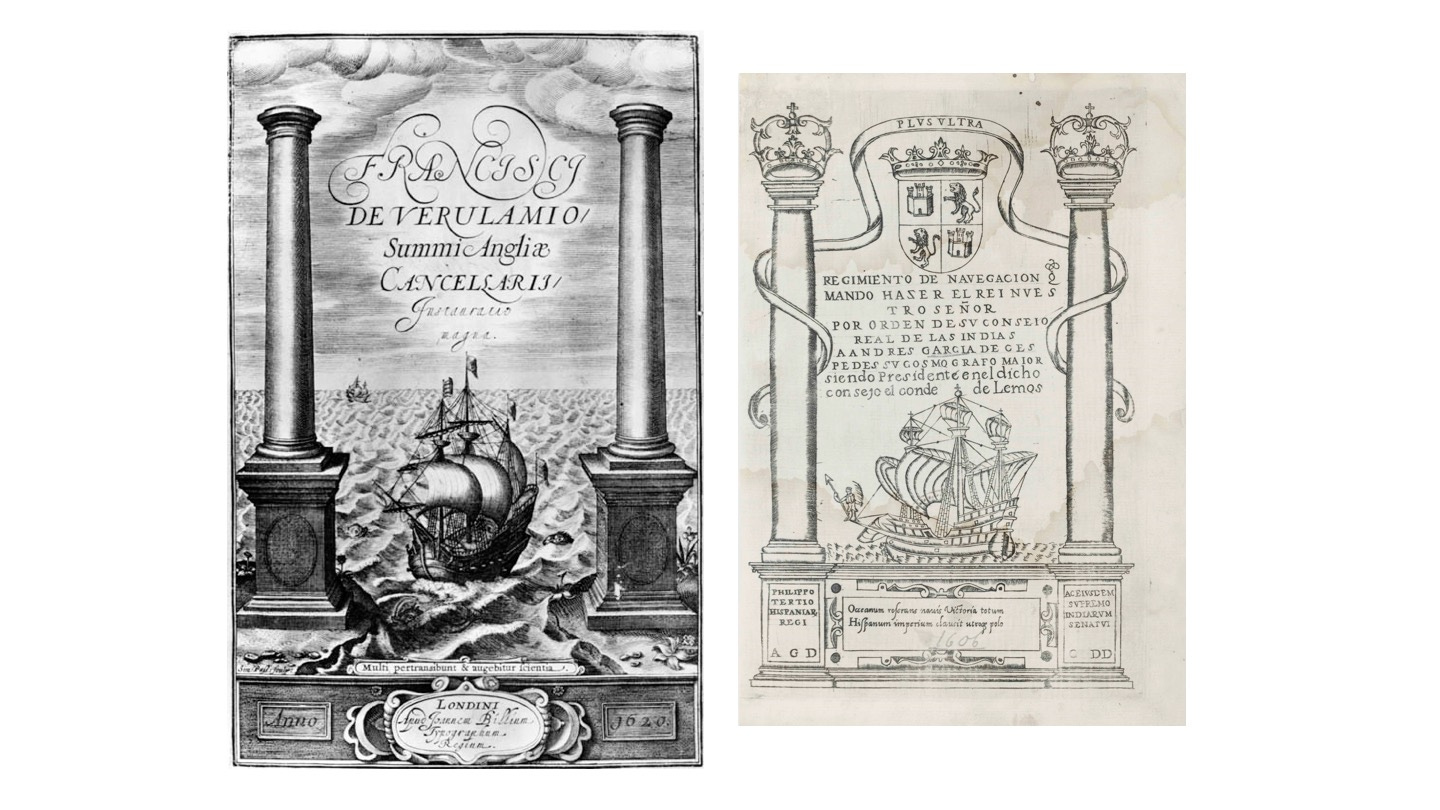
The desire for empire was perhaps part of the motive for reforming the English language. A new beginning, a Great Instauration, is a time for a major overhaul: a great project requires a great language to support it. Sir Francis Bacon had been working on upgrading and improving the English language since his return from France in 1579 when he gathered around him some of the leading poets and scholars of the day to help him.21
In promoting empire, Bacon is following in the footsteps of John Dee, Elizabeth I’s magus [aka Prospero, The Tempest?], and his 1577 General & Rare Memorials pertayning to the Perfect Arte of Navigation which suggested a great empire based on naval strength. Bacon himself sat on a number of colonial boards including the East India Company which he joined in 1618. This is the company that the Venetians were particularly interested in and which became so successful that the English ‘nabobs’ running it went on to build the massive C17th & C18th estates throughout England - inspired by the Venetian architect Palladio.
Schwab, on the other hand, is contractionist. In general Schwab wants society shut down, restricted, an end to the ‘tyranny of GDP’ growth,22 all under the pretext of ‘climate action’. He writes enthusiastically about the ‘degrowth movement’ which has been in existence since the 1970s - fewer flights, less meat [quite what less meat has to do with ‘degrowth’, unless he means no more expanding waistlines…?!].23
Given that ‘empire’ is no longer acceptable, other means have to be found to keep the natives in place and ‘climate action’ is clearly a useful tool for keeping the Global South poor and hungry. Because, although Schwab promotes UN Sustainable Development Goals (SDGs), he says nothing about the difficulty of achieving them, such as SDG7 which focuses on affordable clean energy and Net Zero.
Schwab does not protest that a third of world’s population are allowed access to LPG gas as a ‘transitional’ fuel for cooking instead of wood only grudgingly - because of Net Zero targets and LPG being a fossil fuel. The UN estimates that there are 4 million premature deaths every year from using wood and charcoal; deaths which could be prevented, were LPG more widely encouraged. The globalists instead want poorer countries to use expensive, dangerous and unreliable electricity.24
Baconian Scientific Method
The kind of ‘paradise’ that Schwab favours would have resonated with Bacon four hundred years earlier because it is based on the same reductionist science and technology that Bacon, in pursuit of ‘primary causes’, was so influential in shaping. In common with Galileo (another Sarpi protege) and in anticipation of Descartes and Newton (also under Venetian influence), Bacon stripped scientific enquiry of any emotion, of any consciousness, of any role of the observer. Bacon was dismissive of what he calls the ‘idols’ of the mind (what we might call ‘prejudices’). Thus we arrive at the scientific distinction between ‘objective’ and ‘subjective’; not properly challenged until the double slit experiments of the C20th.
Bacon was also keen to keep religion and science separated (‘With regard to the sciences that contemplate nature, the sacred philosopher declares it to be "the glory of God to conceal a thing, but of the king to search it out"‘).25 In so doing, he was following Sarpi by updating the role of Aristotle in their thinking, that knowledge is discovered through observation and experiment using logic. He even named part of the Great Instauration the “New Organon” in deference to Aristotle.
It was this kind of soulless Aristotelian approach that the Venetian Doom Cult were keen to encourage at the time of Bacon, as a counter to Kepler. But there was a danger of going in the wrong direction by falling in line with the Venetians, as Francis Bacon demonstrated in his change of mind about the impact of the Moon on tides. Before 1616 he had accepted the link between the Moon and the tides, as is clear from this quote from Hamlet:
From 1616 onwards, after he began corresponding with Sarpi, further editions of the play no longer include the lunar theory. Bacon wrote a treatise De fluxu et Refluxu Maris,26 taking up Galileo’s position who had dismissed the lunar theory as an “occult theory based on miracles”. Galileo had accused Kepler of being “childish” for believing in it. After all, the lunar theory cannot be tested with any kind of empirical experiment.27
A Golden Age - without the Doom Cult
Sadly Bacon was the herald of a New Age, but not a Golden Age; a 400 year era of the Doom Cult using science to warp our minds. Bacon along with Galileo helped to lay the foundation. Its apotheosis was the 2020 pandemic when medical science was used to tyrannise us (“trust the science”). It is no coincidence that the 2024 Davos meeting was all about ‘rebuilding trust’.28 They must know that their reign of psychological terror has peaked.
If Schwab were genuine about wanting a better world - ‘more inclusive, more equitable and more respectful of Mother Nature’ as he writes in the Great Reset -29 then he could at least now apologise for all the ‘mistakes’ that he made in his 2020 book. He could claim that he had been duped. Instead he makes no attempt to redeem himself and is only too willing, for instance, to allow the manipulation of the story around the tragic death of George Floyd to stand.30 The ensuing protests and the BLM movement were clearly encouraged by the Doom Cult to create unrest and social division.
Francis Bacon was no stranger to ‘false flag’ events. In his time it wasn’t the ‘race card’ that was used to foment trouble, but religion. He would likely have been aware of the motive behind the 1605 Gunpowder Plot, allegedly organised by his cousin Robert Cecil.31 Its purpose was to provoke King James into fighting the Catholic enemies of the Doom Cult, the papacy and the Spanish. Admittedly the English supporters of Venice ultimately failed and when the devastating wars of religion did break out in 1618, The Thirty Years War, England did not take part.
To some extent we have to partially forgive Bacon for falling under the spell of the Doom Cult. After all, his plays under the Shakespeare pseudonym have brought pleasure to millions. But then, as we have just seen on the pyramid stage at the 2024 Glastonbury Festival, the Doom Cult has no difficulty in using the language of “unconditional love” and peace.32 (Are they are up to their old tricks of trying to bewitch the masses?) But actions are what matter. Sir Francis Bacon’s legacy of empirical science has also done untold damage and delayed our genuine entry into a Golden Age.
As more people realise how we have been tricked, just maybe the tide is turning, and to quote Bacon aka Shakespeare:
“There is a tide in the affairs of men.
Which, taken at the flood, leads on to fortune …”[Brutus, Julius Ceasar, Act 4, Scene 3]
And perhaps now is the time that many of us begin to break away from the Doom Cult by creating our own re-sets as they are increasingly revealed as part of the Dark Age. The mask is slipping.
ps please note that I am publishing this article deliberately on 4th July 2024 to coincide with the American Day of Independence, and the date that some cosmic joker chose for the British General Election… I live in hope.
There is compelling evidence that Sir Francis Bacon was likely the original ‘Shakespeare’, even if others were also involved. Edward D Johnson in his 1951 ‘The Shaksper Illusion’ (London) gives a convincing explanation of how the author of the plays came to be known as ‘Shakespeare’. Up until 1597 all the earliest plays had been published anonymously but then in that year an unfortunate incident happened when Queen Elizabeth I reacted badly to the play Richard II which she considered to be treasonable.
The following year the play re-appeared, this time attributed to ‘William Shake-speare’ (an allusion to Bacon’s muse the Greek goddess Pallas Athene who, as the patroness of learning, carries a spear). Luckily for Bacon, there was an actor from Stratford who was in London around that time who happened to have the name Will Shaksper. According to this version, Bacon gave him money for the use of his name and persuaded him to go back to Stratford until the row was over. Shaksper was thus able to buy his family the biggest house in Stratford called ‘New Place’ and then went on to become the official ‘Shakespeare’. [Johnson pp88-89]
Klaus Schwab & Thierry Malleret, Covid-19: The Great Reset, Geneva 2020
p113 ditto [Some might say that, with the Doom Cult in control, the world is more dangerous precisely because of its international bodies like the UN or the WHO. The entire Net Zero project, for instance, threatens to become devastatingly destructive of both the West and the Global South, if ever fully implemented]
In case of doubts about Kissinger’s true allegiance, in a May 1982 speech at Chatham House, London, Kissinger admitted that “In my White House incarnation then [as national security adviser], I kept the British Foreign Office better informed and more closely engaged than I did the American State Department”. This is the same Kissinger who worked in the US State Department between 1968 and 1973 at the time of the Vietnam war and who helped to open up China from 1971 onwards as a slave factory destination for off-shoring US manufacturing (ie the de-industrialisation of America).
Henry Kissinger received his honorary knighthood in 1995 and Klaus Schwab in 2006
p133 Klaus Schwab & Thierry Malleret, Covid-19: The Great Reset, Geneva 2020
Klaus Schwab, 3rd March 2020
p87 Edward D Johnson, The Shaksper Illusion, London 1951
Shylock demands his pound of flesh in the court of ‘law’ while Portia argues for mercy in the court of ‘equity’ - Merchant of Venice 1598
Christina G. Waldman Francis Bacon, Bellario in The Merchant of Venice, and Incorporation by Reference 2019; Russell Fowler, Judicial Warfare and the Triumph of Equity Tennessee Bar Association, March 2019; Rick Laws Conflicts of Law and Equity in The Merchant of Venice, Washington State University
p44 Webster Tarpley, Against Oligarchy, Campaigner, September 1981
Gerald Curzon, Paolo Sarpi (1552-1623) Philosophy Now 2014
p153 Klaus Schwab & Thierry Malleret, Covid-19: The Great Reset, Geneva 2020
p93 ditto (‘governments will most likely … decide that it’s in the best interests of society to rewrite some of the rules of the game and permanently increase their role’)
Preface to The Great Instauration 1620 (Hanover historical texts project)
ditto
ditto
cf pp51-52 Iain McGilchrist The Master & his Emissary - the divided brain & the making of the Western World, London 2010
pp22-25 Klaus Schwab & Thierry Malleret, Covid-19: The Great Reset, Geneva 2020
viz his writings about ‘On Plantations’; Dominating nature and colonialism. Francis Bacon’s view of Europe and the New World
pp125-126 Peter Dawkins, Arcadia & the Arcadian Acadeny (The life & times of Francis Bacon 1579-1585) The Francis Bacon Research Trust, 1988 [According to Dawkins, Bacon’s motive was to create a sacred language, a language of use to Rosicrucians. While that may be true, Bacon is arguing in the New Organon against theorising and in favour of practicalities: its object is “the doctrine touching a better and more perfect use of reasoning in the investigation of things [my emphasis], … And the art which we employ (and which we are wont to call the interpretation of nature) is a kind of logic. … For the end of our science is not to discover arguments, but arts…”. This is the reason why Bacon was so opposed to the old Aristotelian syllogisms. Too much theorising, not enough praxis. A language that was clearer, more easily understood could only help with such a project.]
pp60-61 Klaus Schwab & Thierry Malleret, Covid-19: The Great Reset, Geneva 2020
p64 ditto
Unlock the SDGs and Net-Zero with Clean Cooking SDG7 Multi-Stakeholder Energy Compact https://www.un.org/sites/un2.un.org/files/clean_cooking_energy_compact_final.pdf
Preface to The Great Instauration 1620 (Hanover historical texts project)
pp145-146 Edward D Johnson, The Shaksper Illusion (London) 1951
Intellectual mathematics blog, Galileo’s theory of tides, January 2019
https://www.weforum.org/events/world-economic-forum-annual-meeting-2024/
p250 Klaus Schwab & Thierry Malleret, Covid-19: The Great Reset, Geneva 2020
p245 ditto. It has since emerged that Floyd died of a drug overdose and not police brutality.
p45 Webster Tarpley, Against Oligarchy, Campaigner, September 1981


